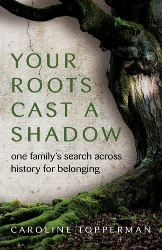In 1949, Kampala, Uganda became home to a small community of Eastern European Jews who settled there after the second world war. Janice Masur, the author of Shalom Uganda, spent part of her childhood in Kampala, and in this well-researched book she offers a thorough history of the region, as well as a personal account of life in that community.
The book begins with a general overview of Jews in Africa, going back as far as 1867 (though the book points out that Jews started to arrive on the African coast in the 1400s). Masur’s own community settled in Kampala between 1949 and 1961. Her personal memories — supplemented by interviews with others who lived there — offer glimpses into the day-to-day life, the Jewish practice, and the ways in which the community lived with echoes of the Holocaust.
Some of the author’s recollections are charming anecdotes: she describes how her Eritrean nursemaid, Abhret, taught her how to thread glass beads on a string, “how to swear in Tigre, and how to throw stones at stray dogs when [they] walked about the town together.” Other memories deftly explore interactions from her youth whose significance she only came to understand later in life: “My mother spent a lot of time screaming at the houseboy in frustration at his supposed inability to follow instructions, which I later learned was a passive tactic of rebellion against British rule.”
Whilethe community had no rabbi, the families did their best to maintain Jewish customs, including having sixty pounds of matzah sent from Nairobi in time for Passover, and, one year, “a rabbi was imported from South Africa for Yom Kippur.” Still, while Masur writes that she was not aware of any open discrimination among her Kampalan teenage cohort, “anti-Semitism continued to be the dark underbelly — oblique and subtle, applied to certain schools, choice housing and job allocation.” Some chose to hide their Jewishness, and Masur’s own parents gave her the choice of whether to hide or reveal her Jewish identity depending on circumstances.
Ultimately, the community in Kampala did not survive and left few traces of its existence. The families left. There had been no synagogue to mark the community’s life there, and the Jewish cemetery disappeared, leaving no trace. Most disturbingly, this community of Eastern European Jews seems to have been written out of the history of the region.
Masur notes that there is some awareness of the Abayudaya Jews of Uganda — descendants of an African military leader who began living a Jewish life in 1919 — but, until now, there has been little common knowledge of the history of European Jews in Africa, and Shalom Uganda serves as a fascinating overview of this seldom discussed history.
Ada Brunstein is the Head of Reference at a university press.





